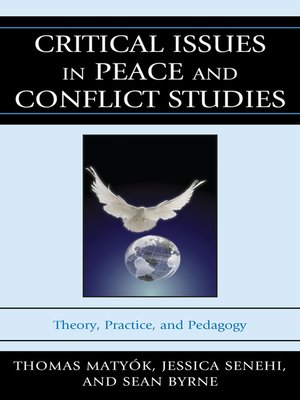Critical Issues in Peace and Conflict Studies
ebook ∣ Theory, Practice, and Pedagogy
By Ousmane Bakary Bâ

Sign up to save your library
With an OverDrive account, you can save your favorite libraries for at-a-glance information about availability. Find out more about OverDrive accounts.
Find this title in Libby, the library reading app by OverDrive.



Search for a digital library with this title
Title found at these libraries:
| Library Name | Distance |
|---|---|
| Loading... |
Peace and Conflict Studies (PCS) includes scholars and practitioners throughout the world working in peace studies, conflict analysis and resolution, conflict management, appropriate dispute resolution, and peace and justice studies. They come to the PCS field with a diversity of ideas, approaches, disciplinary roots, and topic areas, which speaks to the complexity, breadth, and depth needed to apply and take account of conflict dynamics and the goal of peace. Yet, a number of key concerns and dilemmas continue to challenge the field. Critical Issues in Peace and Conflict Studies: Theory, Practice, and Pedagogy, edited by Thomas Matyók, Jessica Senehi, and Sean Byrne, is a collection of essays that explores a number of these issues, providing a means by which academics, students, and practitioners can develop various methods to confront the complexity of contemporary conflicts.
Critical Issues in Peace and Conflict Studies discusses the emerging field of PCS, and suggests a framework for the future development of the field and the education of its practitioners and academics. The book has a wide audience targeting students at the undergraduate, graduate, and post-graduate levels. It also extends to those working in and leading community conflict resolution efforts as well as humanitarian aid workers.
Critical Issues in Peace and Conflict Studies discusses the emerging field of PCS, and suggests a framework for the future development of the field and the education of its practitioners and academics. The book has a wide audience targeting students at the undergraduate, graduate, and post-graduate levels. It also extends to those working in and leading community conflict resolution efforts as well as humanitarian aid workers.







